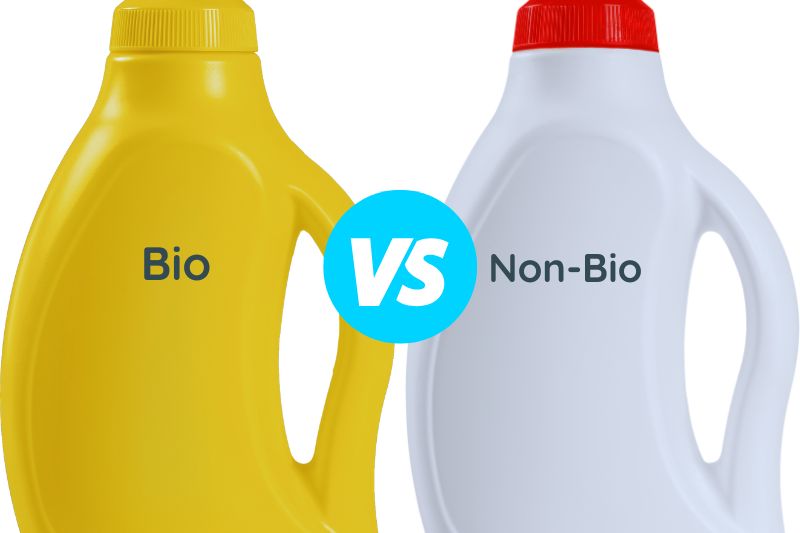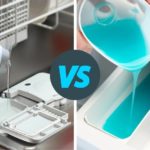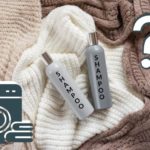Each time you visit a supermarket and pick up a box or bottle of laundry detergent you’re probably aware that there are many different brands, sizes and prices of detergent available.
Some come in large boxes, some come in small bottles, some laundry detergents are biological, and some are non-biological. But what is the difference between bio and non-bio, and which one should you use?
We’re going to take a look at this now.
Biological Laundry Detergent
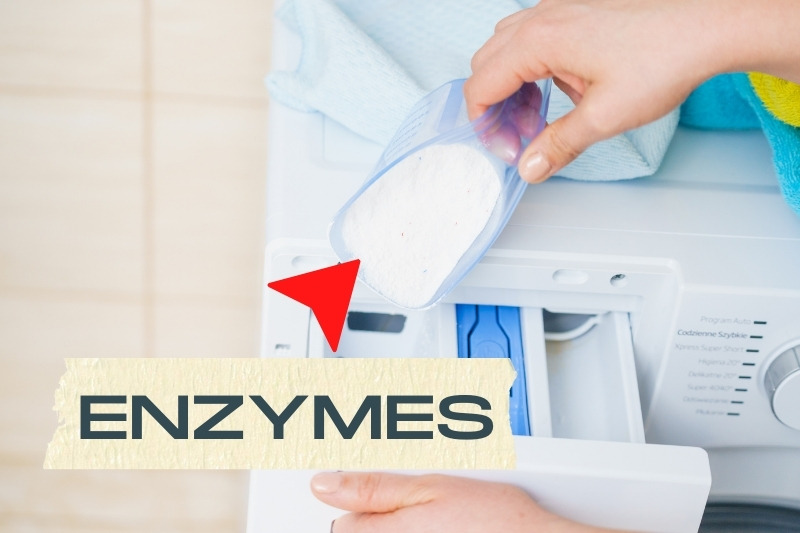
Contains enzymes which may tackle stains more effectively
Biological laundry detergent contains specific enzymes that work to break down grease, starch and fat compounds that are usually found in clothes stains.
The enzymes work by lifting the stains out of the fabric so they can be washed away, making your dirty garments clean once more.
This is just one of the many potential benefits of using biological detergent.
Works best at lower temperatures
Another benefit of using biological detergent is that it works best at lower temperatures of 30 to 40°C. Anything hotter can damage the enzymes, causing it to work less effectively.
This is good for your bank balance, since washing at lower temperatures will help save you money.
May be harsher on sensitive skin
One of the downsides of using biological laundry detergent is that many people believe it is harsh on sensitive skin. If the detergent has not been completely washed away, it could be irritable to the skin and potentiality aggravate eczema.
However, this point is controversial, and has been dismissed by some scientists as a myth. Whether or not a laundry detergent irritates your skin may have more to do with the other ingredients in it rather than the enzymes themselves, so it may not be as simple as non-bio = good, bio = bad.
Non-Biological Laundry Detergent
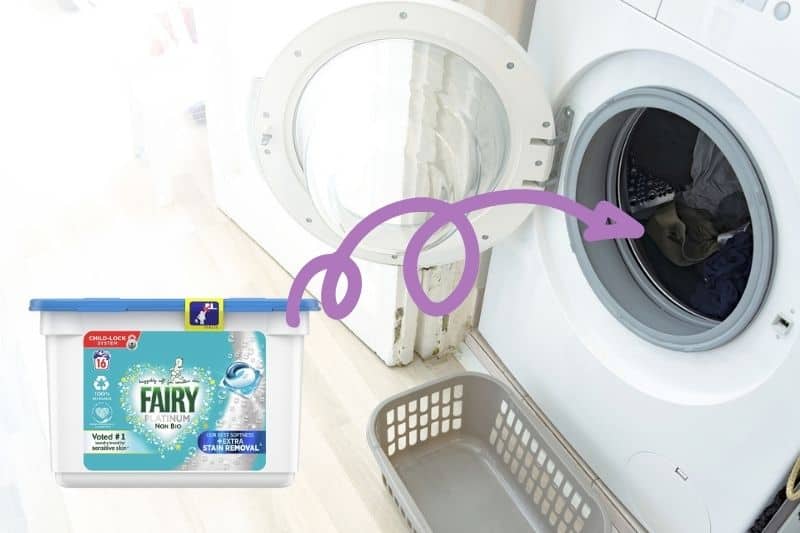
Non-biological laundry detergent does not contain the same stain-busting enzymes as biological detergent does, but the good news is that it still works hard to get rid of those pesky stains thanks to its cleaning power.
Works best at higher temperatures
If you choose to use non-biological detergent you may need to wash your garments at a higher temperature than you would if you were using bio detergents.
This potentially means that using non-bio detergent may not be as environmentally friendly on account of the higher water temperature.
May be better for sensitive skin
Many people believe that non-bio detergents are kinder to sensitive skin and better if you have eczema or asthma. However, as we said before, this is controversial, and there is a lack of scientific evidence to support this belief.
Even if there is little evidence that enzymes are to blame for skin reactions, many popular brands such as Persil state that their non-bio detergents are kinder to sensitive skin than their bio detergents.
Brands know that people choose non-bio detergents because they want something more gentle, and are therefore more likely to emphasise this when they develop non-bio formulas.
Which Should You Choose?
Now you’re aware of some of the benefits and disadvantages of biological and non-biological laundry detergent, do you know which one to choose? The good news is it’s quite simple to choose:
Biological detergents contain enzymes, while non-bio detergents don’t.
Non-biological detergents are a good choice for washing baby’s clothes and for use in homes where sensitive skin or eczema is an issue. Even though there isn’t much evidence the enzymes in biological detergents are to blame for skin irritation, non-bio detergents still tend to be gentler on average.
Biological detergents are ideal for washing very dirty clothes, particularly those that tend to become stained and need a thorough clean.
The good news is that you can use both biological and non-biological detergents in your home so you can get a multitude of garments clean, you just need to make sure you use the right detergent at the right time.
So, if you’re washing really dirty clothes opt for a biological detergent, and if you’re washing baby clothes, for example, opt for non-biological detergent.
Alternatively, if you don’t want to get your detergents mixed up, you may want to stick to non-biological detergent, and wash those very dirty clothes at a higher temperature.
Now all you need to think about is whether you want to use powder, liquid, pods or sheets…

In The Wash is your guide to the best laundry and cleaning products, tips and tricks. Our mission is to solve the UK’s cleaning and laundry dilemmas!
